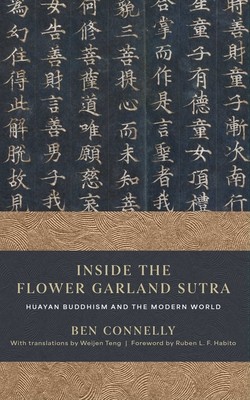
- We will send in 10–14 business days.
- Author: Ben Connelly
- Publisher: Wisdom Publications
- ISBN-10: 1614298777
- ISBN-13: 9781614298779
- Format: 12.5 x 20.1 x 1.8 cm, minkšti viršeliai
- Language: English
- SAVE -10% with code: EXTRA
Reviews
Description
A Soto Zen teacher explores the core teachings of the ancient Huayan school of Buddhism through an innovative and engaging collection of essays showing how to put these teachings into practice. Huayan Buddhism arose in the sixth century and was rooted in the Mahayana Flower Garland Sutra. The teachings of Huayan had a profound influence on Chan and Zen. Huayan is relational, practical, and positive. Its emphasis on interdependence, celebration of the sensual world, and diversity of people and practices provides inspiration for what Thich Nhat Hanh called "engaged Buddhism." With Inside the Flower Garland Sutra, Zen teacher Ben Connelly explains the significance of Huayan teachings for Buddhist practice. Each chapter is a commentary on one of the thirty lines of Uisang's "Song of Dharma Nature"--a seminal Korean text that summarizes Huayan thought--thus providing a broad overview of Huayan teachings and their practical implications for contemporary life, with a mix of testimonies from real-life situations and references to influential Buddhist texts. Arising fifteen hundred years ago, Huayan has made a deep impact on East Asian Buddhism, and has much to offer during this era when many folks see ever-deepening divisions. Connelly explores how Huayan offers particular wisdom for those concerned about how to care for their own lives as they work to end harms such as ecological devastation, poverty, militarism, addiction, marginalization, and exploitation.- Author: Ben Connelly
- Publisher: Wisdom Publications
- ISBN-10: 1614298777
- ISBN-13: 9781614298779
- Format: 12.5 x 20.1 x 1.8 cm, minkšti viršeliai
- Language: English English


Reviews